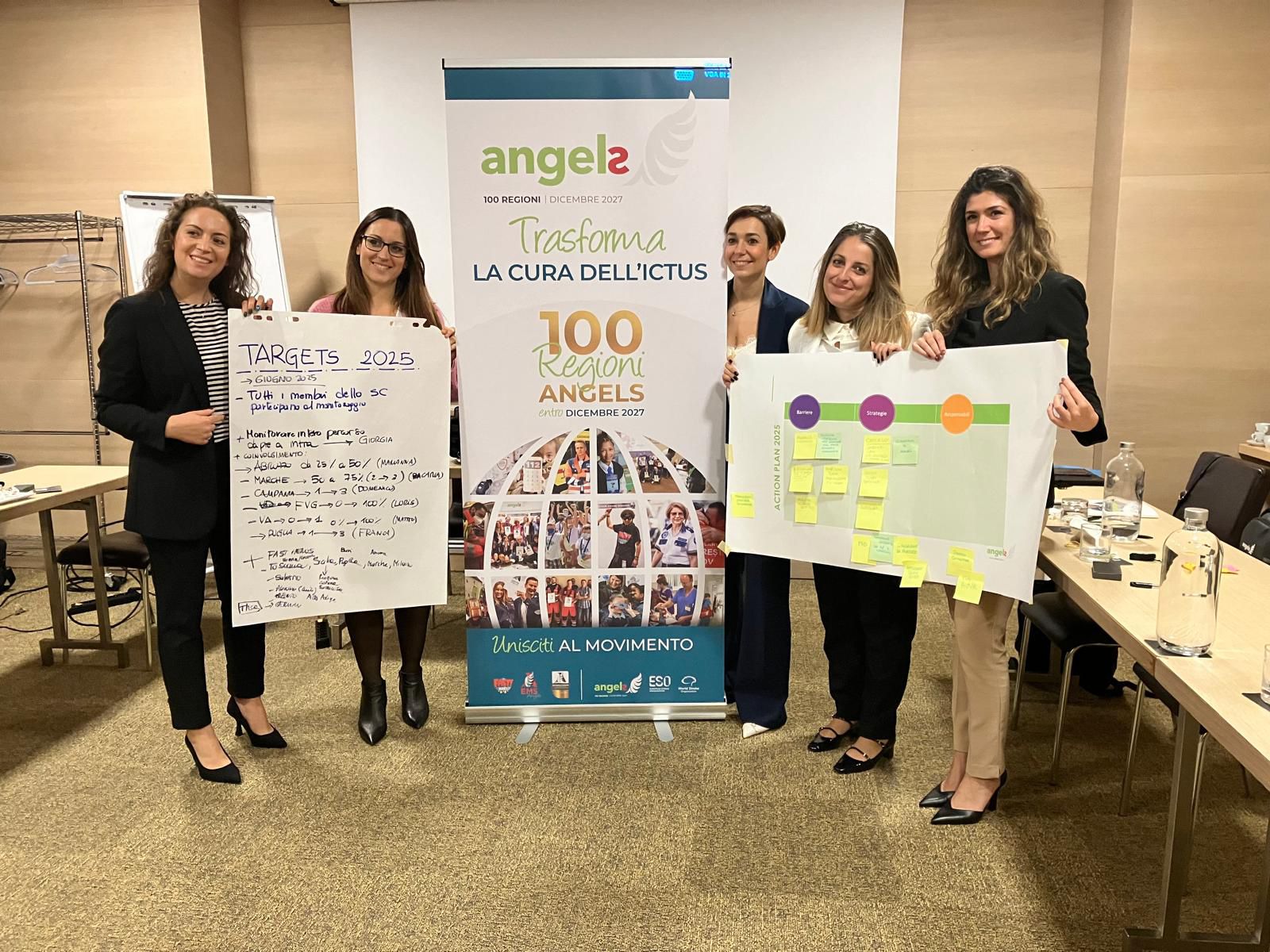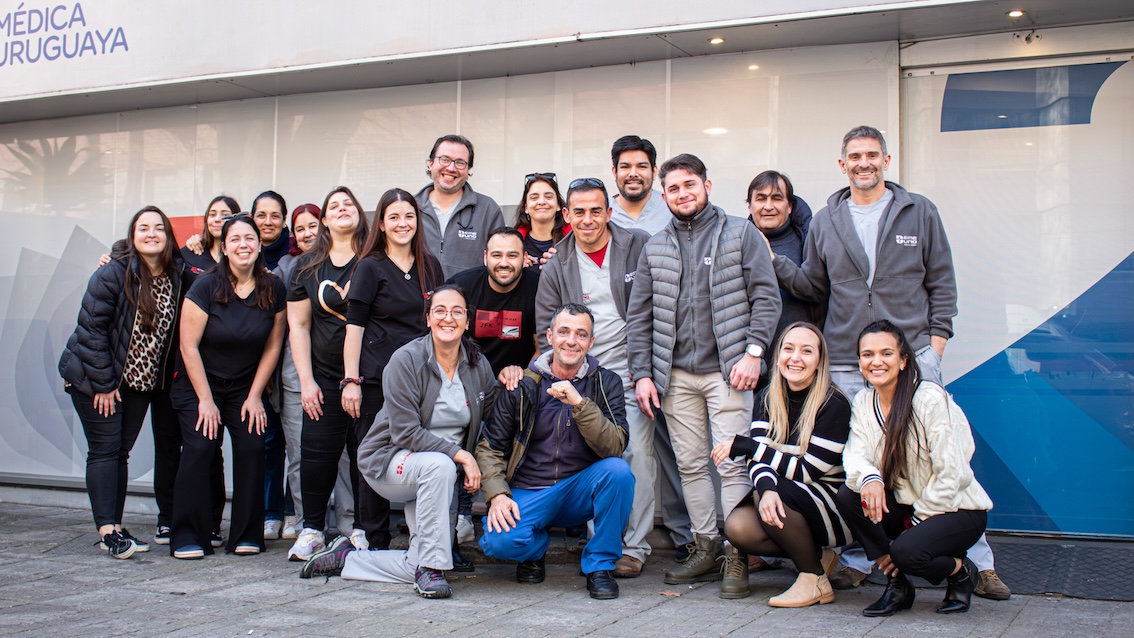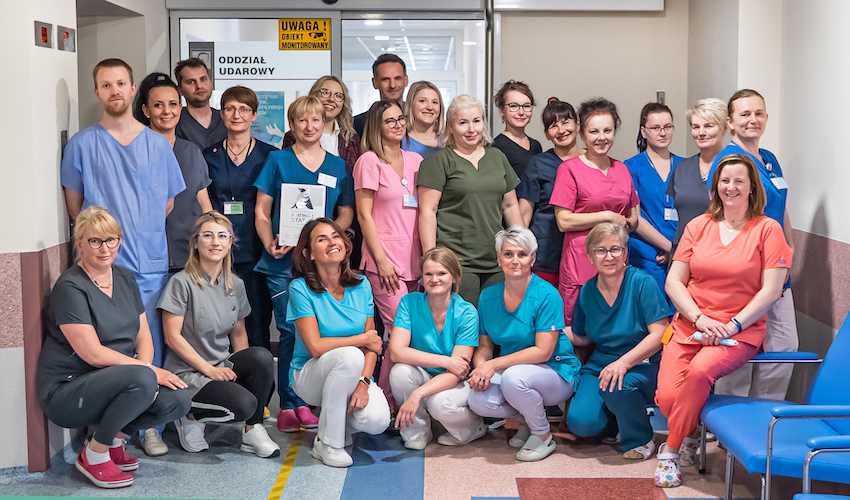
DEUX choses que vous devez savoir à propos de Waàbrzych, la ville qui est le cadre de cette histoire.
L’une d’entre elles est devenue une ville minière au XVIIIe siècle et a cessé d’en être une en septembre 1996, lorsque le dernier camion de charbon a été amené à la surface. Un musée se trouve maintenant là où se trouvait auparavant la mine de charbon, mais au-dessus du sol, la ville d’après-minage est porteuse des cicatrices. Le chômage est élevé et de nombreux anciens mineurs vivent dans des circonstances délimitées.
"Parce que les mines existaient, et parce qu'elles se fermaient, la société est malade", explique le Dr Patrycja Marciniak, jeune strokologue à l'hôpital spécialisé de soins Alfred Soko BUowski où il est fréquent de voir des maladies chroniques des systèmes cardiovasculaire et pulmonaire, et jusqu'à 50 patients accident vasculaire cérébral par mois.
Afin de sensibiliser les personnes les plus susceptibles d’être touchées par un accident vasculaire cérébral, le Dr Marciniak, en collaboration avec le cardiologue Dr Aleksandra Potocka-Chmielewska, donne régulièrement des conférences à la succursale locale d’U3A (une organisation mondiale dédiée au partage des connaissances entre les seniors) et est ravi que les activistes des petites communes proches suivent maintenant sa direction. Elle encourage également les écoles et les maternelles de Wabrzych à mettre en œuvre la campagne FAST Heroes par laquelle les enfants apprennent à reconnaître les symptômes de l’accident vasculaire cérébral chez leurs proches et leurs soignants.
Elle dit "C'est une initiative extrêmement importante et nécessaire, surtout dans les communautés comme la nôtre".
La seconde chose à savoir sur le Waàbrzych est que son service d’ambulance et l'hôpital où travaille le Dr Marciniak sont des établissements de premier ordre exceptionnellement capables de soigner sa population vulnérable. Et quand il s'agit de la prise en charge de l'accident vasculaire cérébral, ils sont parmi les meilleurs en Europe.
L'hôpital et l'service d’ambulance ont tous deux atteint le statut de diamant dans les programmes de prix Angels, et les deux parties vous diront qu'elles ne pourraient pas le faire sans l'autre.
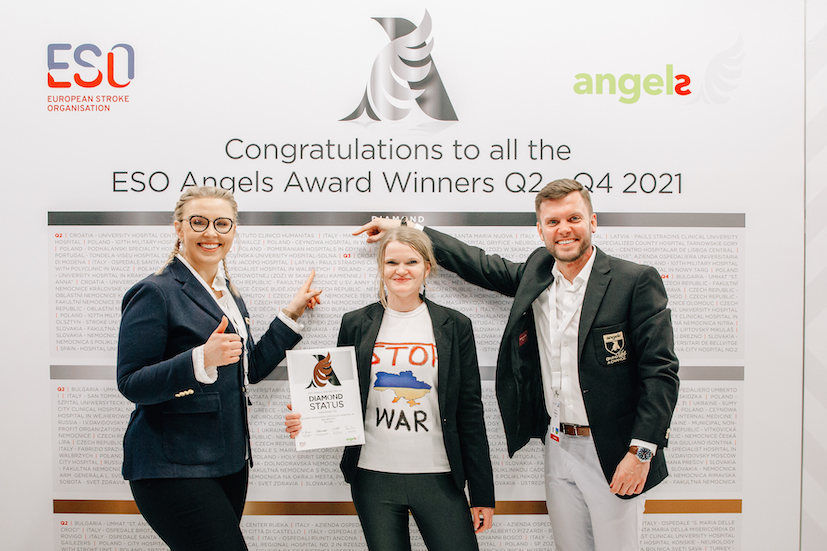
CETTE histoire sur deux équipes travaillant ensemble pour le bénéfice des patients victimes d’accident vasculaire cérébral a commencé en 2017 lorsque le service de neurologie de l’hôpital Soko àowski a invité des membres du service d’ambulance à une réunion multidisciplinaire. Ici, avec l’consentement de la directrice des SMU, M. Ryszard Kuyerak, neurologue en chef, le Dr Katarzyna Krawczyk-Rojek, a mis en place un protocole de prise en charge de l’accident vasculaire cérébral.
Le personnel ambulance a immédiatement commencé à mettre en œuvre tous les éléments énoncés dans le protocole. Il s'agissait notamment de l'utilisation de l'échelle ROSIER pour la détection de l'accident vasculaire cérébral, la prise en compte des antécédents médicaux et des médicaments du patient notamment des anticoagulants, la mise en place de deux cathéters intraveineux périphériques, la prénotification du service des urgences de l'hôpital et l'appel du neurologue sur un numéro de téléphone spécial pour les informer qu'un patient suspect patient ayant subi un accident vasculaire cérébral était en cours. Toutes ces actions ont servi un seul objectif : s’assurer que le patient a reçu le traitement plus rapidement.
Pendant ce temps, à l’hôpital de Soko àowski, le Dr Krawczyk-Rojek a introduit systématiquement de nouvelles mesures pour atteindre le même objectif en éliminant les retards dans le parcours de l’accident vasculaire cérébral.
Lorsque Katarzyna Putyo, la consultant Angels, s’est rendue à l’hôpital quelques années plus tard, elle trouvait une voie simplifiée qui ne laissait pas de calculs. Une prénotification en ambulance signifiait qu’un neurologue attendait aux service des urgences à l’arrivée du patient. Les patients ayant subi un AVC ont été suivis rapidement jusqu’aux urgences et transférés au laboratoire de TDM le plus rapidement possible. La radiologie étant une entité privée au sein de l’hôpital, il n’était pas encore possible d’administrer les patients directement à la TDM, mais la pratique consistant à commencer la thrombolyse dans la salle de TDM était progressivement introduite.
Pour s’assurer que les patients accident vasculaire cérébral ont reçu les meilleurs soins possibles pendant leur séjour à l’hôpital, l’hôpital avait choisi de participer à l’étude QASC Europe, une étude de mise en œuvre du protocole FeSS dans les soins post-aigus. Ils avaient également été inclus dans le registre d’amélioration de la qualité des soins neuro-vasculaires RES-Q, et profitaient de l’analyse des données pour surveiller leurs performances et identifier les lacunes.
Chaque intervention a eu un impact positif sur les résultats des patient. Le délai d’attente avant la prise en charge chuté entre 15 et 20 minutes, et le taux de traitement a augmenté au-dessus de 20 %. Dans l’unité neuro-vasculaire où les patients ont été admis après le traitement, l’engagement était accru parmi le personnel soins infirmiers à mesure que la sensibilisation augmentait de leur impact sur les résultats des patient. Le dépistage de la dysphagie a été responsable d’une baisse spectaculaire du nombre de patients atteints de pneumonie d’inhalation.
À la fin de 2019, l’hôpital de Soko àowski a reçu une reconnaissance internationale pour ses efforts pour améliorer les soins neuro-vasculaires, en atteignant le statut platine dans les Angels Awards de lESO. Ils ont remporté leur premier prix diamant au début de l’année 2020, et au cours des trois prochaines années, ils en ont ajouté sept de plus.
Mais ce n’est que la moitié de l’histoire.
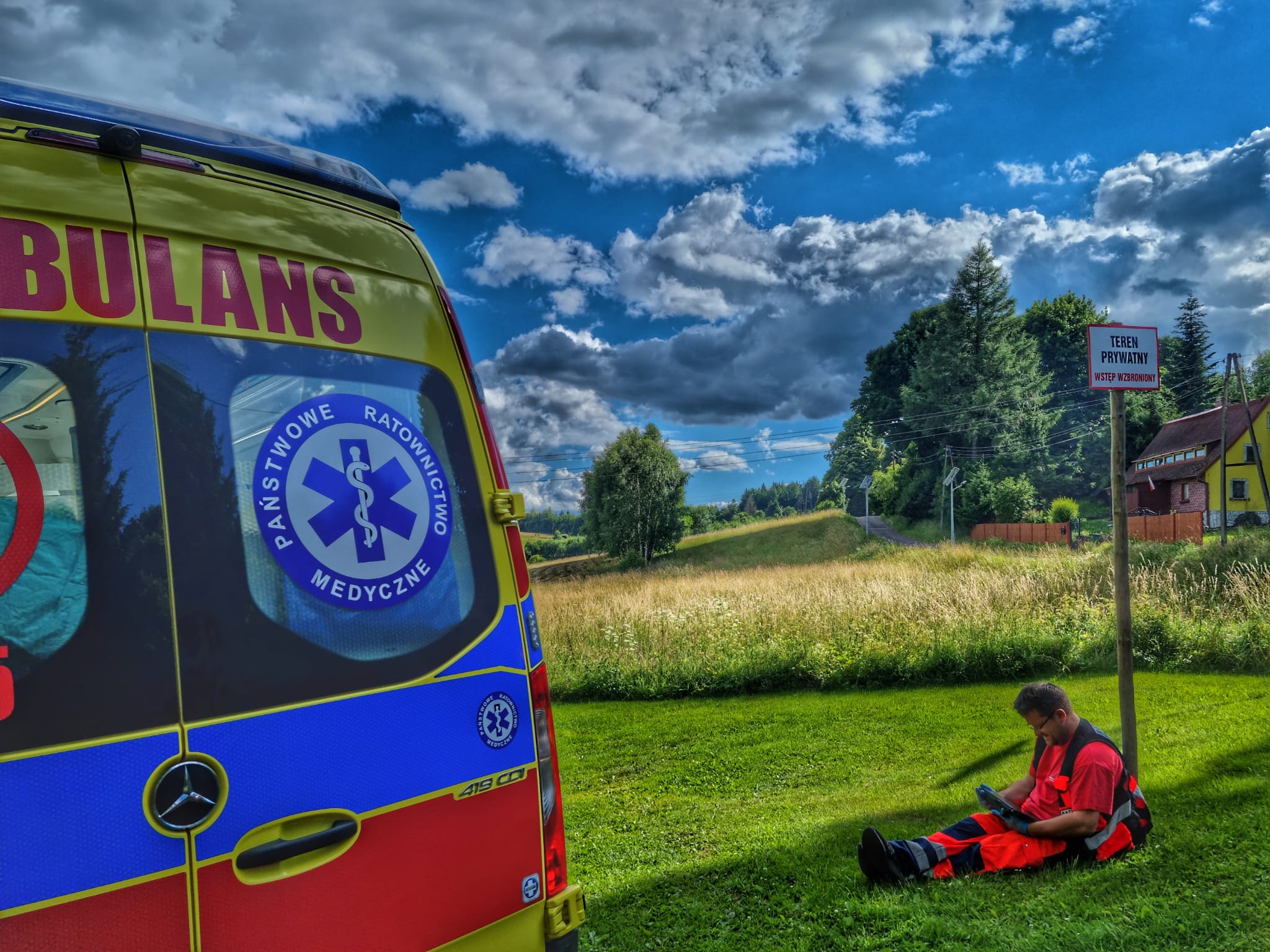
LORS d’une réunion en 2021, les oreillettes ambulancier de Mateusz Pitiào se sont piquées lorsqu’il a entendu les Drs Patrycja Marciniak et Dagna Fa lesciszewska parler des Angels Awards des SMU qui reconnaissent l’excellence dans les soins pré-hospitaliers pour accident vasculaire cérébral . Le service d’ambulance de Waaïbrzych a continué à répondre aux normes de soins définies par le Dr Krawczyk-Rojek en 2017. Il savait que c’était quelque chose que son équipe pouvait gagner.
Mateusz dit : "Etudier les critères de prix, j'ai conclu que nous nous conduisions de manière similaire et que nous respections de nombreuses normes depuis près de quatre ans. La réception du prix semblait presque une formalité, mais ce serait aussi une opportunité de développement, de motivation, de mise à jour de nos règles de conduite pour devenir encore plus efficace, et de suivi de la qualité."
En octobre de l'année suivante, Mateusz s'est hissé sur scène à Berlin pour accepter le premier Prix platine Angels des SMU du service d’ambulance de Wa-brzych. Ils ont ensuite augmenté leur niveau et, trois mois plus tard, ils ont remporté un prix diamant.
"Il est impossible de ne pas remarquer la corrélation entre les SMU et l'hôpital recevant un prix diamant", explique Mateusz. Une relation synergique semble être au travail, dans laquelle chacun d’entre eux améliore l’efficacité de l’autre, de sorte qu’ensemble, ils créent une contribution supérieure à celle qu’ils feraient indépendamment. Cela, explique Mateusz, résulte d'un "suivi continu de la qualité, d'une compréhension mutuelle et d'une motivation qui accélèrent les procédures préhospitalières et hospitalières, et d'un retour du service de neurologie qui montre aux équipes de secours à quel point elles sont importantes dans la prise en charge d'un patient ayant subi un accident vasculaire cérébral".
Le mot F est important. Le retour d’information était un élément demandé par les ambulanciers, dit Katarzyna, parce qu’ils n’avaient autrement aucune idée de ce qui s’est passé à un patient après qu’il les ait livrés. Maintenant, les médecins se souviennent d’envoyer à Mateusz des informations sur les résultats des patient.
"Nous contactons régulièrement les services d'urgence pour leur faire savoir que, grâce à leurs propres efforts, un patient pourrait subir une thrombolyse et une thrombectomie et que son état s'améliorait", dit le Dr Marciniak. "Il est extrêmement important d'avoir des contacts avec les secouristes et des opportunités d'échanger des expériences et d'avoir des discussions communes sur des cas spécifiques."
Le feedback est la colle dans la relation entre l’hôpital et les SMU. Mateusz dit "Prenez par exemple un patient qui a été amené à l'hôpital avec une aphasie complète et une parésie et qui a quitté l'hôpital avec peu ou pas de déficits. La transmission de ces informations à l’équipe leur permet de voir les effets de leur propre travail. Il donne un sentiment de joie et de conscience de l’importance de votre lien dans la prise en charge des patient.
"Recevoir du feedback permet le développement. Grâce au feedback, les équipes sont en mesure d’analyser ce qui a été bien fait et ce qui n’a pas été bien fait. Cela donne l’occasion de tirer des conclusions pour l’avenir. Le feedback identifie les domaines qui nécessitent une amélioration, ce qui permet d’effectuer les ajustements appropriés aux protocoles et procédures communs. Je crois que c'est l'un des éléments clés pour améliorer la coopération avec l'hôpital".
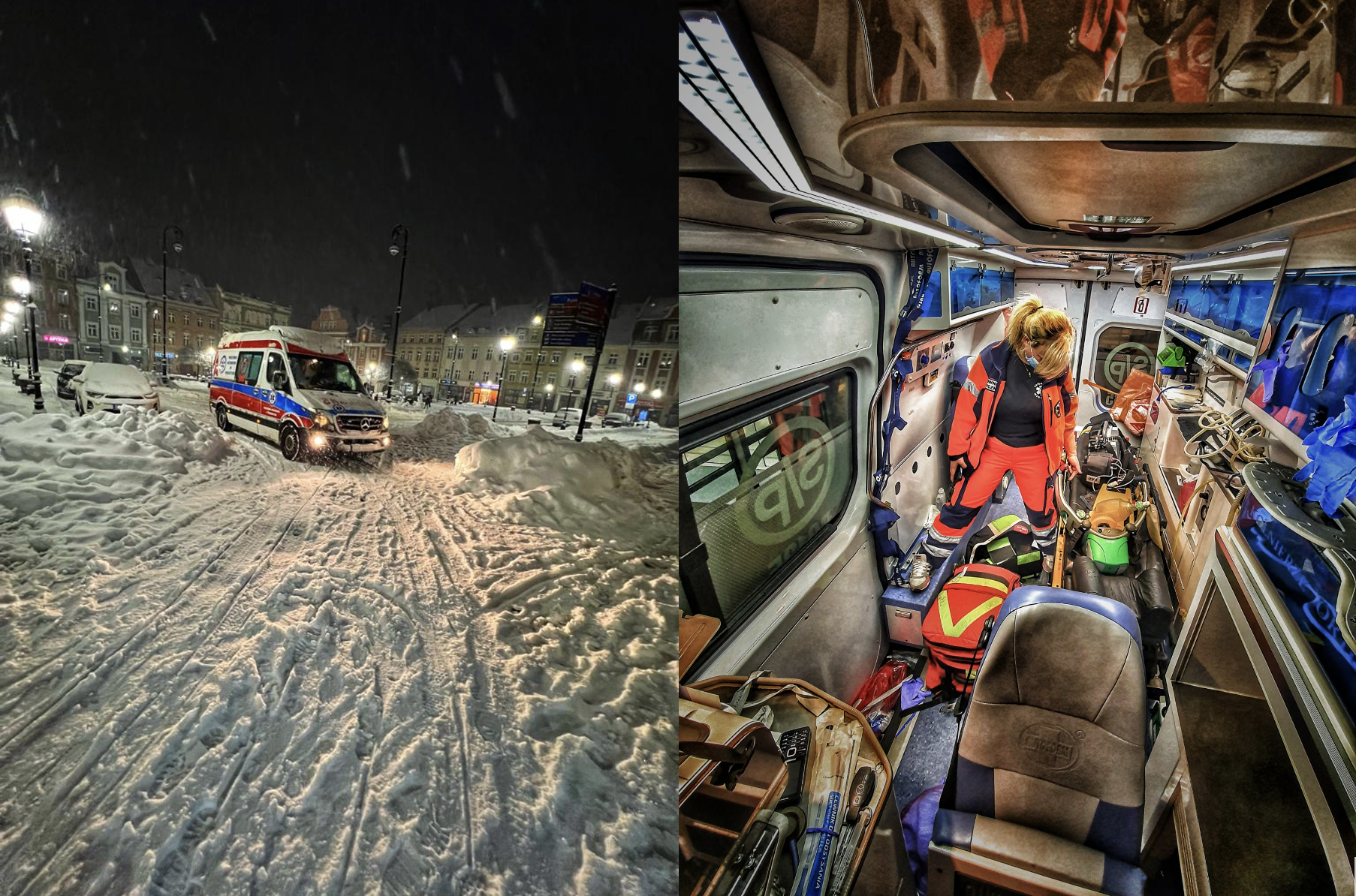
L'ÉQUIPE avec le service d’ambulance en 2017 a été la première étape vers l'amélioration de la qualité de l'ensemble de la chaîne de survie des patient, explique le Dr Marciniak.Ils disent qu'une chaîne n'est que très forte que son maillon le plus faible, et dans ce cas c'est la métaphore parfaite.
"Les premiers liens de la chaîne sont le patient et le service d’ambulance – nous ne pouvons donc pas négliger l'importance de former la communauté à l'accident vasculaire cérébral. Et bien sûr, nous ne pouvons pas oublier les liens suivants : travailler en étroite collaboration avec les radiologues et améliorer la qualité des soins dans la salle d’accident vasculaire cérébral. Tout le monde dans la communauté des personnes impliquées dans le traitement de l'accident vasculaire cérébral est familier avec le slogan 'le temps c'est le cerveau'. Nous pensons qu'il est d'autant plus précis de dire que "l'équipe c'est le cerveau".
Ce type de travail d’équipe ne peut se faire que là où il y a bonne volonté, selon Mateusz. "Le développement conjoint d'un protocole accident vasculaire cérébral approprié ne peut avoir lieu sans la bonne volonté des deux parties. Je suis très contente qu'avec le service de neurologie de Wa àbrzych nous puissions faire partie d'une machine merveilleuse dont l'objectif est de plus en plus rapide les procédures, les diagnostics et le traitement, et de minimiser les déficits chez les patients ayant subi un accident vasculaire cérébral."

